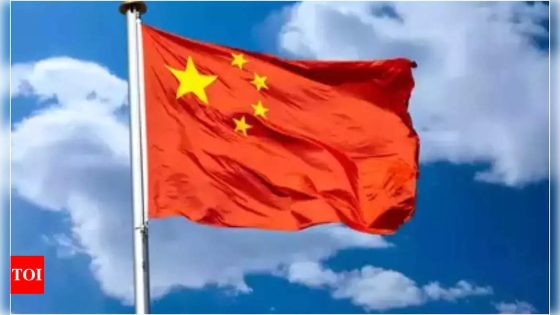Indian companies manufacturing telecom equipment are lobbying the government to curb imports from China, according to a report in the Economic Times. These domestic players, including big names like TCS, Tejas Networks, and STL, argue that such imports contradict the spirit of the “Atmanirbhar Bharat” (self-reliant India) initiative and stifle their own growth.
The Voice of Indian Communication Technology Enterprises (VoICE), an industry group representing Indian telecom equipment makers, claims that Chinese imports persist despite government guidelines promoting sourcing from trusted vendors. The value of these imports reaches into the millions of dollars, raising concerns for domestic manufacturers.
“We are already making the equipment that’s being imported,” said RK Bhatnagar, Director-General of VoICE, as quoted by the Economic Times. “If Indian companies can compete on price and quality, why import at all?”
Bhatnagar highlights the significant volume of Chinese imports, accounting for nearly 40% of India’s total telecom sector imports, according to the report. He emphasizes that even crucial components like optical fiber cables are brought in from China, despite India having leading domestic manufacturers like STL and HFCL.
VoICE has reportedly petitioned various ministries, arguing that domestic players, including those receiving government support through production and design-linked incentive schemes, have the capacity to entirely fulfill India’s telecom equipment needs.
Cisco, D-Link, TP-Link, Hikvision and these companies violating ‘China rule’
Cisco, D-Link, TP-Link, Hikvision, Netgear, Hewlett Packard, and Juniper are the top companies importing equipment such as access points, switches, and radio equipments, as per the data by VoICE. For example, Cisco dominated access point imports with a staggering Rs 394 crore out of a total Rs 644 crore from China between 2020 and 2023.
Bhatnagar suggests that these figures indicate a lax enforcement of border policies. He advocates for stricter action against officials who overlook violations, as outlined in the government’s “Make in India” policy, according to the Economic Times.
VoICE is also calling for a review of the Government e-Marketplace (GeM) procurement process, which they believe allows Chinese products into government and public sector orders, as reported by the Economic Times.
Furthermore, they propose stricter controls on traders who import or reroute equipment through shell companies to evade customs checks. Bhatnagar emphasizes the need for a centralized system to blacklist such companies across all government departments, according to the Economic Times report.
By implementing these measures, the Indian government can support domestic telecom equipment manufacturers and promote self-reliance in the critical telecom sector.
The Voice of Indian Communication Technology Enterprises (VoICE), an industry group representing Indian telecom equipment makers, claims that Chinese imports persist despite government guidelines promoting sourcing from trusted vendors. The value of these imports reaches into the millions of dollars, raising concerns for domestic manufacturers.
“We are already making the equipment that’s being imported,” said RK Bhatnagar, Director-General of VoICE, as quoted by the Economic Times. “If Indian companies can compete on price and quality, why import at all?”
Bhatnagar highlights the significant volume of Chinese imports, accounting for nearly 40% of India’s total telecom sector imports, according to the report. He emphasizes that even crucial components like optical fiber cables are brought in from China, despite India having leading domestic manufacturers like STL and HFCL.
VoICE has reportedly petitioned various ministries, arguing that domestic players, including those receiving government support through production and design-linked incentive schemes, have the capacity to entirely fulfill India’s telecom equipment needs.
Cisco, D-Link, TP-Link, Hikvision and these companies violating ‘China rule’
Cisco, D-Link, TP-Link, Hikvision, Netgear, Hewlett Packard, and Juniper are the top companies importing equipment such as access points, switches, and radio equipments, as per the data by VoICE. For example, Cisco dominated access point imports with a staggering Rs 394 crore out of a total Rs 644 crore from China between 2020 and 2023.
Bhatnagar suggests that these figures indicate a lax enforcement of border policies. He advocates for stricter action against officials who overlook violations, as outlined in the government’s “Make in India” policy, according to the Economic Times.
VoICE is also calling for a review of the Government e-Marketplace (GeM) procurement process, which they believe allows Chinese products into government and public sector orders, as reported by the Economic Times.
Furthermore, they propose stricter controls on traders who import or reroute equipment through shell companies to evade customs checks. Bhatnagar emphasizes the need for a centralized system to blacklist such companies across all government departments, according to the Economic Times report.
By implementing these measures, the Indian government can support domestic telecom equipment manufacturers and promote self-reliance in the critical telecom sector.
Source Agencies



